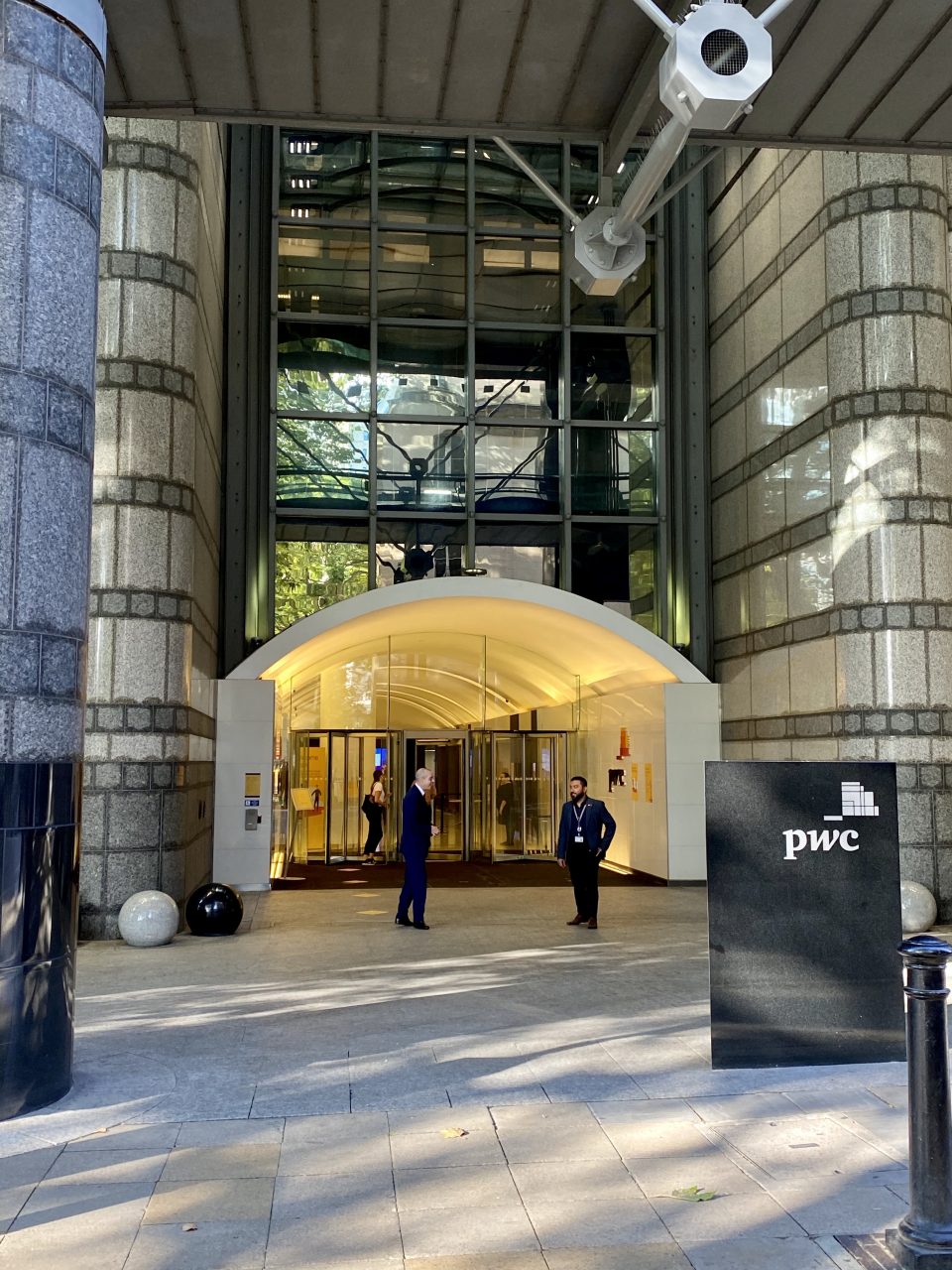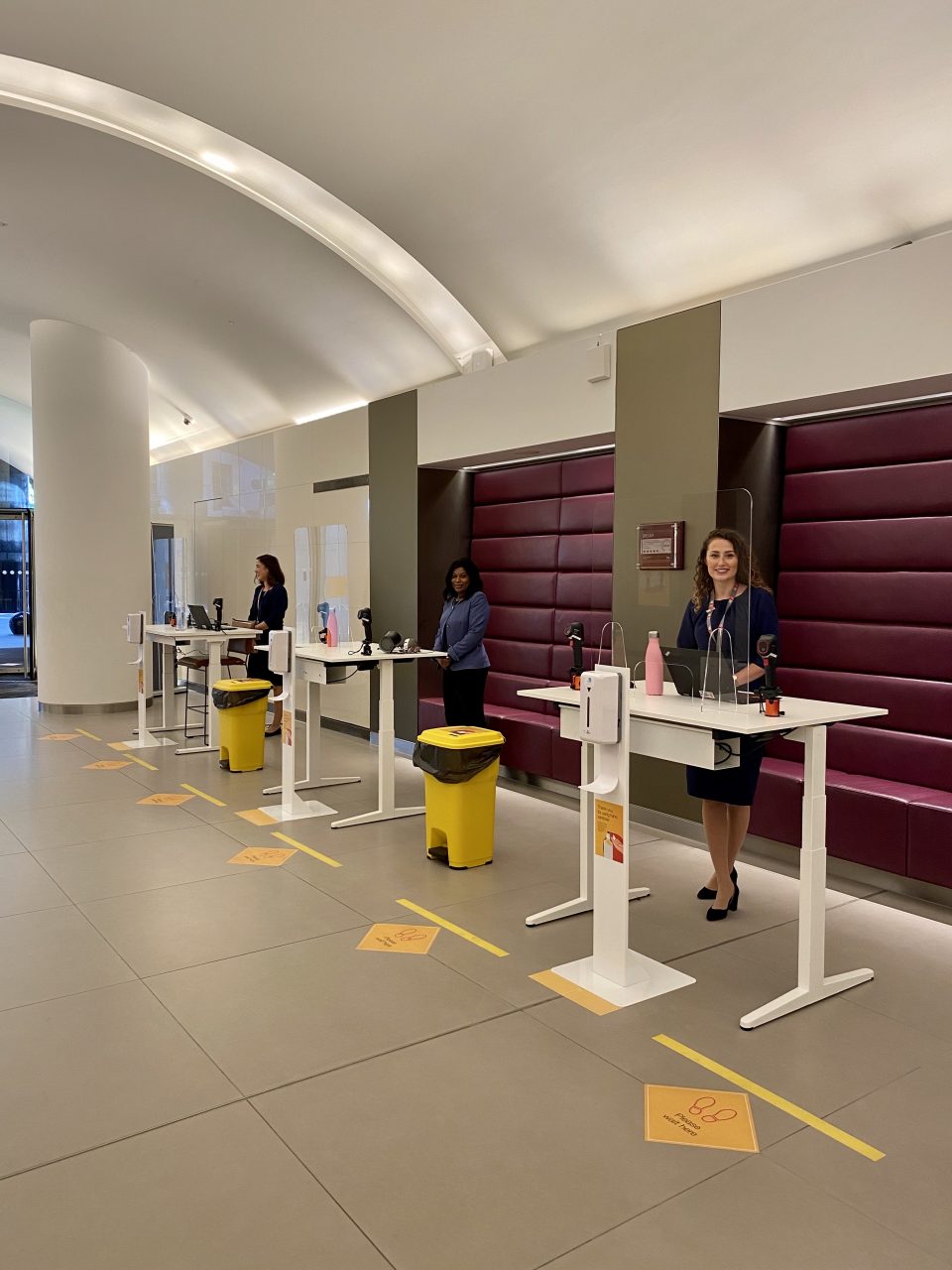How PwC is welcoming staff back into the office safely

The office still has an important role to play in society, the chairman of Big Four auditor PwC believes, as his staff seek to return to their desks after months spent at their kitchen tables.
Kevin Ellis, chairman of PwC tells City A.M. that while the firm has adjusted to remote working the office still plays a crucial role in the day-to-day.
“Our major learning was that it was easier to shut down the offices than it was to bring people back. And it works well working from home,” he says.
Indeed, prior to the pandemic 10 per cent of Ellis’ workforce already worked remotely, so the transition was smoother than most.
However, Ellis tells City A.M. that with an average employee age of 31, the general view was that staff wanted the opportunity to get back to the office.
“We’ve been led by our people and the overriding message is that just because you can work from home doesn’t mean you should.”
He notes the need for human contact, whether for mental health reasons or the need to share ideas.
PwC, which has 22,000 employees in the UK, opened its offices on 8 June “for people with a business or personal need”. From 1 August any PwC employee who wants to return has been able to.
Listen to PwC’s Kevin Ellis speak to City A.M. editor Christian May on the City View podcast:
In the last week of July PwC had around 5,000 employees use its office and Ellis anticipates up to half of his staff will use the office in some capacity by September.
He emphasises that while the office plays an important role, returning is entirely voluntary. “It’s important to give people a choice. Some people aren’t that keen on coming back so it’s on a voluntary basis.”

PwC staff miss office interactions in lockdown
Becky Hartley, a manager at PwC, says: “Returning to the office was really important to me for my mental wellbeing due to living on my own in a flat with no outside space. It helped me to have a change of scenery, interact with people face to face and try and have more of a distinction between home and work.”
And Ellis is keen to emphasise how important the office “hub” is. “Most people learn by watching and interacting with others. Therefore the hub of office life still has a very important role to play in business and society,” he tells City A.M.
Stefan Doering, a senior manager at PwC, echoes this sentiment: “During the last few months I’ve really missed being in the office – working together with colleagues, our vibrant office environment and the buzz of being in central London.
“I wanted to come back to the office simply because I enjoy working from the office a lot more than working from home.”
Most strikingly Ellis revealed London employees who commute into the City are now using the Reading office instead. “It is a different way of using offices, which is a change I think will become permanent,” he says.

Temperature checks, and an AI that controls office capacity
“The majority of conversations I have with members of staff is that they found it very difficult to come back the very first day because they weren’t sure how safe and secure they’d feel,” says Ellis.
But PwC has prioritised health and safety measures to ensure social distancing while keeping the feel of the office. The standard one-way systems throughout buildings and temperature checks on entry have been implemented across its offices.
It has also introduced an “AI bot” that regulates how many people come in and out of the office. Employees can automatically book a time slot to enter an office after confirming they are not exhibiting coronavirus symptoms.
Once staff have registered to attend an office on a particular day, they receive a dated pass on an app to present to the welcome team when they arrive in the office.
This has helped settle some nerves – once the first day back is over staff are keen to return, Ellis says.
“The general view is that employees raised how much they’ve missed being in the office once they came in. Once they did they found themselves coming back more regularly,” he says.
However, Ellis recognises that office life will not return to normal any time soon, admitting he would not be in the office full-time in the future.
And he expectsoffice attendance to fall to three or four days per week in the long term. That means PwC will adopt a more flexible working policy.
Firms ‘have responsibility’ to wider business community
The office may be important for employees but Ellis echoes the government’s concern that the hospitality industry is being hit hard by remote working.
“You can’t open the newspaper or listen to radio stations without talk of potential redundancies and loss of jobs and livelihoods,” he says.
Boris Johnson has openly called for firms to start welcoming employees back to the office. And he has loosened restrictions on public transport to encourage commuting.
However, London firms have adopted a more cautious approach. While three-quarters of companies in the capital have welcomed staff back to the office, the numbers have so far been small.
Morgan Stanley analysis shows British employees have been the slowest to return to the office in the EU.
Get the news as it happens by following City A.M. on Twitter.